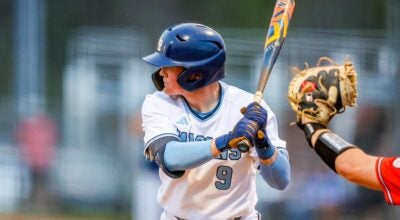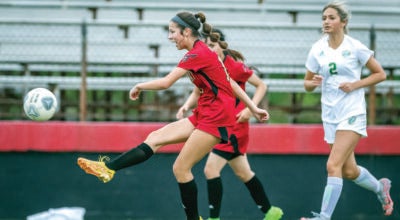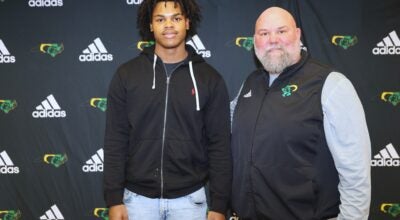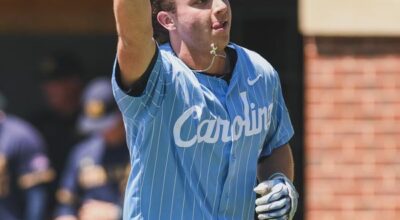Scratched: Kentucky Derby now set for September due to virus
Published 9:00 pm Tuesday, March 17, 2020
By Beth Harris
AP Racing Writer
Change does not come easily to the Kentucky Derby.
Fans sip mint juleps, don fancy hats and dress clothes and sing to the melancholy strains of “My Old Kentucky Home” as the thoroughbreds step onto the track on the first Saturday in May. It has always made the Derby as much a piece of Americana as a horse race.
The country’s longest continuously held sports event thrives on this tradition, especially its date on the calendar.
That changed Tuesday.
Churchill Downs postponed the Derby until September, the latest rite of spring in sports to be struck by the new coronavirus along with the Masters, March Madness and baseball season. Instead of May 2, the race will be run Sept. 5, kicking off Labor Day weekend.
“It’s good that they didn’t cancel it,” said Hall of Fame trainer Bob Baffert, who has several top contenders that could earn him a record-tying sixth Derby victory.
However, Baffert added, “Until they get their arms around this virus, we’re all day-to-day”
It’s the first time the Derby won’t be held on the first Saturday in May since 1945, when it was run June 9. The federal government suspended horse racing nationwide for most of the first half of the year before World War II ended in early May, but not in time to hold the opening leg of the Triple Crown that month.
“We’ll roll with the punches,” Bill Carstanjen, CEO of Churchill Downs Inc. said during a conference call, “and feel very, very good that September is the right date.”
The date change still must be approved by the Kentucky Horse Racing Commission at its meeting Thursday. The date belonged to smaller Ellis Park, which struck a deal with Churchill Downs. Skip Sayre, spokesman for Ellis Entertainment, said both sides agreed to keep the amount of money involved confidential.
“We were more than willing to accommodate,” Sayre said. “Our agreement with Churchill keeps us whole from a financial perspective.”
Still to be decided are the dates of the next two legs of horse racing’s showcase series — the Preakness and Belmont.
Carstanjen said the September date was chosen after talks with NBC Sports, which televises the Triple Crown races, based on the limited number of sports events that weekend and hotel availability in Louisville.
Churchill Downs clearly wasn’t interested in running the 146th Derby without fans in the stands, which is what other tracks have been doing, including Santa Anita in California, Oaklawn in Arkansas and the Fair Grounds in Louisiana.
“We feel confident we are going to run the Kentucky Derby and run it with a crowd,” Carstanjen said. “It’s a participatory event.”
The race itself lasts just two minutes, but the partying and socializing goes on throughout Derby week, with celebrity-stuffed charity galas and private house parties. Last year’s race drew 150,729 fans. People who pay little attention to horse racing the rest of the year typically watch the Derby and wager on it either formally or in pools set up at parties.
The Derby was first run in 1875 and has gone uninterrupted, even through the Great Depression and World Wars I and II.
In 1943, there were travel restrictions imposed by World War II and no out-of-town tickets were sold. Still, the Derby went on, with Count Fleet winning in front of 65,000. The colt won the Triple Crown that year.
The Kentucky Oaks, the race for fillies held on Derby eve, is also hugely popular, especially among Louisville locals. It first began in 1875. It will be run Sept. 4.
Horses have been training and racing to earn points that translate into berths in the 20-horse Derby field even as the rest of the sports world has mostly shut down because of the virus pandemic. Horses have only one chance in their lives to compete in the Derby, Preakness and Belmont stakes for 3-year-olds.
“From a trainer’s standpoint, holding those 3-year-olds throughout the summer is not a real big problem. I don’t think it affects our training schedule that much,” four-time Derby-winning trainer D. Wayne Lukas said. “I’m more interested in what would be the prep races leading up to it because you do need those.”
Carstanjen said points already earned by horses would be maintained, while existing races at tracks across the country would be added to the Road to the Kentucky Derby qualifying process.
“This will be fun and give fans more time to learn about this year’s crop of 3-year-olds,” he said.
Baffert must reconsider the training and racing schedules for his contenders.
“I’m going to have to back off some of them that are ready to go right now,” he said. “The thing is to keep them healthy.”
The Derby draws strong TV ratings. By moving it to Sept. 5, the race wouldn’t conflict with Notre Dame football, satisfying NBC Sports, which televises both. The University of Louisville has an away football game that day.
The Preakness is scheduled for May 16 at Pimlico in Baltimore, and no decision has yet been made on its status.
“While we are mindful of the challenges these times present we also know that events like the Preakness Stakes can help restore our sense of place and economic well-being to our communities and state,” the Maryland Jockey Club said in a statement.
The Belmont is June 6. The New York Racing Association said “decisions about large-scale public events must prioritize public health and safety above all else.” NYRA added that it will update the status of the Belmont “only when that process has concluded to the satisfaction of state and local health departments.”
For most people, the new coronavirus causes only mild or moderate symptoms, such as fever and cough, with the vast majority recovering in about two weeks.
Carstanjen said Churchill Downs alerted Pimlico and Belmont Park as it got close to completing a new date with NBC Sports.
“They were receptive and had their own questions. There is time in the calendar that NBC can make available,” he said.
NBC Sports said it appreciates the “traditional sequencing of the Triple Crown races,” but these are “uncharted waters” and the network will work with the Preakness and Belmont to “determine the most appropriate timing.”
The Derby has an impact of about $400 million on the Louisville area. Hotels, restaurants, gas stations, grocery and liquor stores depend on the race for much of their yearly revenue. And they all jack up their prices come Derby week.
The Kentucky Derby Festival said Tuesday its event will be postponed until later in the year. The two weeks of Derby Festival events leading to the race have a local economic impact of $127 million. Thunder Over Louisville, the popular fireworks display, has been rescheduled to Aug. 15.
Tradition aside, Baffert expressed concern about the racing industry surviving the effects of the coronavirus pandemic. Keeneland race track in Lexington, Kentucky, recently scrapped its entire spring meet.
“At the end of the day, it’s just a horse race,” Baffert said of the Derby, “and I’m more worried about what’s going on in the world. Right now, we’re all in survival mode until we get this thing figured out.”
___
AP Sports Writer Gary B. Graves in Louisville, Kentucky, contributed to this report.
___
More AP sports: https://apnews.com/apf-sports and https://twitter.com/AP_Sports





